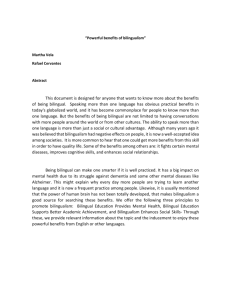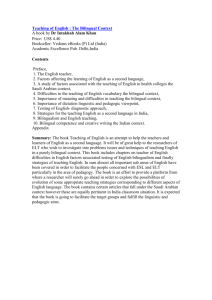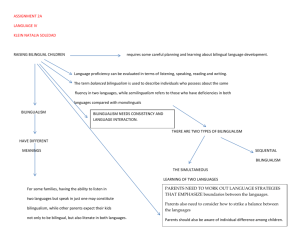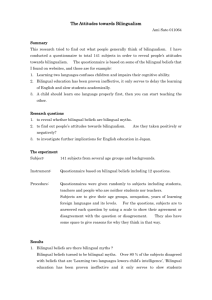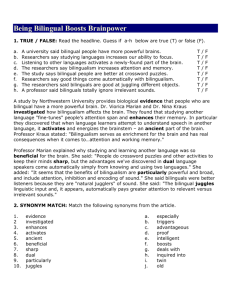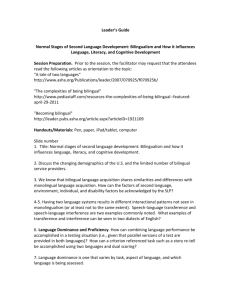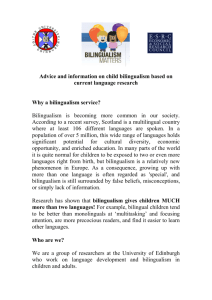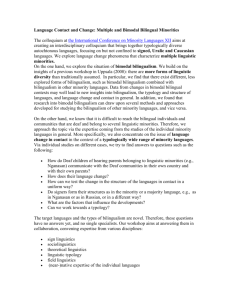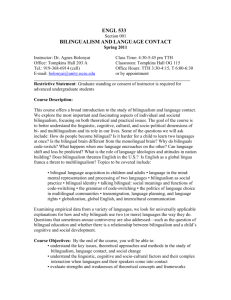The Attitudes towards Bilingualism
advertisement
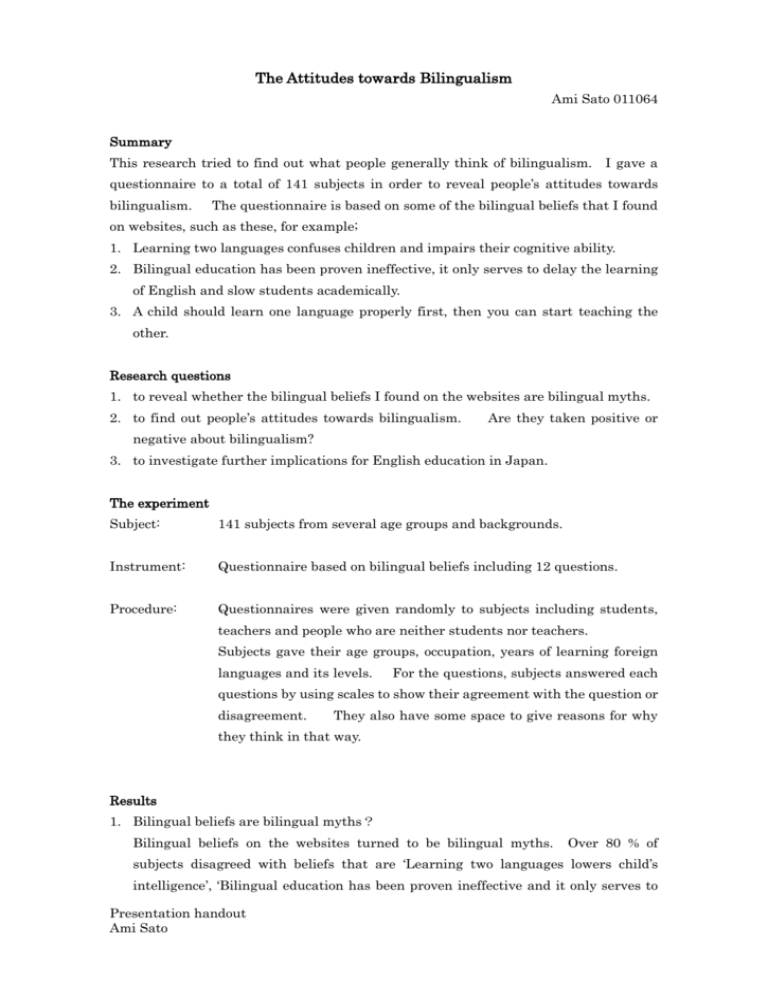
The Attitudes towards Bilingualism Ami Sato 011064 Summary This research tried to find out what people generally think of bilingualism. I gave a questionnaire to a total of 141 subjects in order to reveal people’s attitudes towards bilingualism. The questionnaire is based on some of the bilingual beliefs that I found on websites, such as these, for example; 1. Learning two languages confuses children and impairs their cognitive ability. 2. Bilingual education has been proven ineffective, it only serves to delay the learning of English and slow students academically. 3. A child should learn one language properly first, then you can start teaching the other. Research questions 1. to reveal whether the bilingual beliefs I found on the websites are bilingual myths. 2. to find out people’s attitudes towards bilingualism. Are they taken positive or negative about bilingualism? 3. to investigate further implications for English education in Japan. The experiment Subject: 141 subjects from several age groups and backgrounds. Instrument: Questionnaire based on bilingual beliefs including 12 questions. Procedure: Questionnaires were given randomly to subjects including students, teachers and people who are neither students nor teachers. Subjects gave their age groups, occupation, years of learning foreign languages and its levels. For the questions, subjects answered each questions by using scales to show their agreement with the question or disagreement. They also have some space to give reasons for why they think in that way. Results 1. Bilingual beliefs are bilingual myths? Bilingual beliefs on the websites turned to be bilingual myths. Over 80 % of subjects disagreed with beliefs that are ‘Learning two languages lowers child’s intelligence’, ‘Bilingual education has been proven ineffective and it only serves to Presentation handout Ami Sato slow students academically’. The results appeared significantly on each questions showing that people hold strong opinions. In other words, subjects have strong interests in this topic. 2. Bilingualism is taken positively or negatively? Most people take bilingualism positively. Many of the subjects mentioned cognitive encouragement when learning a second language. 117 out of 140 subjects answered that they want to bring up their children bilingually in order to broaden children’s opportunities in job fields. In addition, some people mentioned that learning another language help their children understand another culture as well. 3. Implications Through this research, I found out that subjects hold positive attitudes towards bilingualism. This result will encourage our English education at earlier stage in Japanese education system, because Japan in under an appropriate circumstance to introduce English education to children. Presentation handout Ami Sato
